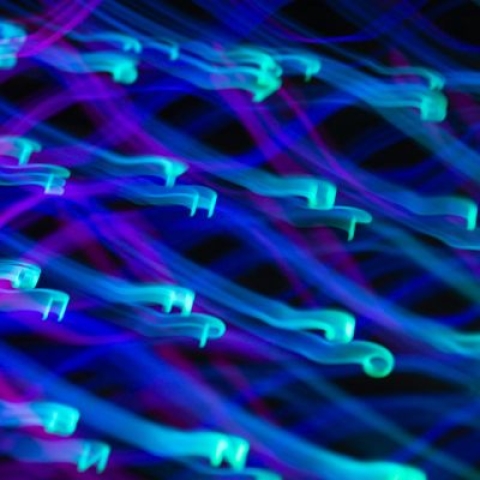
Our quantum optics and quantum foundations research looks at how photons – individual massless quanta of light – interact with each other as well as massive particles, such as atoms.
Our work uses photons to test many of the counter-intuitive phenomena at the foundation of quantum mechanics. Phenomena such as quantum superposition, quantum interference and entanglement are also fundamental resources in quantum information processing and quantum metrology.
We aim at developing novel quantum optics experiments to analyse quantum optical phenomena and we use them in quantum information processing. Our research is useful in understanding the fundamental quantum nature of our universe and boosting the development of new technologies.
Our research is regularly published in international journals, such as Nature Journals, Physical Review Letters, New Journal of Physics, Physical Review A, Quantum Information Processing, and Optics Express.
Our research covers the following topics
- Linear and nonlinear optics networks
- Quantum interference
- Multiboson correlations and entanglement
- Quantum optical tests at the interface between quantum mechanics and general relativity
- Atom-light interactions
- Quantum dots
Our work also crosses disciplines with atomic physics, complexity theory, general relativity, biology, medicine, artificial intelligence and environmental science.
Methods and facilities
Our work aims at the theoretical study of novel quantum optics processes and their experimental realisation with the latest technologies.
Along with a supercomputer facility in the Institute of Cosmology and Gravitation (ICG), we have a quantum optics lab including lasers, nonlinear crystals, optics and photon detectors, and a time-resolved photoluminescence system.
Collaborations and funders
Quantum information and sensing is one of the key areas of expertise at the Quantum Science and Technology Hub and benefit of the large network of international collaborations with leading institutions across four continents and of funding from both government and industry within the hub.
Publication highlights
-
3D collimation of matter waves
Tamma, V. (2021) "3D collimation of matter waves", Physics Magazine
-
Distance sensitivity of thermal light second-order interference beyond spatial coherence
Pepe, F., Scala, G., Chilleri, G., Triggiani, D., Kim, Y., Tamma, V. (2022) "Distance sensitivity of thermal light second-order interference beyond spatial coherence", The European Physical Journal Plus
-
Scattershot multiboson correlation sampling with random photonic inner-mode multiplexing
Tamma, V., Laibacher, S. (2023) "Scattershot multiboson correlation sampling with random photonic inner-mode multiplexing", The European Physical Journal Plus
-
Ultimate quantum sensitivity in the estimation of the delay between two interfering photons through frequency-resolving sampling
Triggiani, D., Psaroudis, G., Tamma, V. (2023) "Ultimate quantum sensitivity in the estimation of the delay between two interfering photons through frequency-resolving sampling", Physical Review Applied
-
Boson sampling with random numbers of photons
Tamma, V., Laibacher, S. (2021) "Boson sampling with random numbers of photons", Physical Review A - Atomic, Molecular, and Optical Physics
-
Heisenberg scaling precision in multi-mode distributed quantum metrology
Gramegna, G., Triggiani, D., Facchi, P., Narducci, F. A., Tamma, V. (2021) "Heisenberg scaling precision in multi-mode distributed quantum metrology", New Journal of Physics
Recent projects
-
Multiphoton Quantum Sensing and Information Processing
The overarching goal of this project is to introduce a completely innovative versatile platform for multiphoton quantum information processing and sensing by exploiting:
- easily accessible photonic sources, such as heralded spontaneous parametric down conversion, and thermal light;
- the full quantum information available in the given photonic system, including their inner-mode degrees of freedom (time, position, frequency, transverse momentum, etc).
-
Quantum optical networks for quantum technologies
The project aims to investigate novel multiphoton interference techniques in optical networks for the development of new quantum technologies.
-
Distributed Quantum Optical Sensing
The project aims to investigate novel quantum optical techniques based on the use of multiphoton distributed networks to estimate single or multiple physical parameters for imaging, biomedical, environmental and fundamental applications.
Discover our areas of expertise
Quantum optics and quantum foundations is one of three areas of expertise within our Physics research. Explore the others below.
Condensed Matter Physics
We're looking for solutions to issues around energy harvesting, efficiency and storage, medical technologies, security, and the environment. Explore our condensed matter physics research.

Quantum information and sensing technologies
We're conducting research into new quantum technologies, including applications for high-precision measurements, computing, and secure communication.

Our blogs
Research centres and groups
Quantum Science and Technology Hub
In our Quantum Science and Technology Hub (QSTH), we're studying quantum science and developing novel quantum technologies.

Applied Physics Research Group
We're exploring research in quantum information technologies, quantum optics and quantum foundations and applied advanced materials.

Interested in a PhD in Physics?
Browse our postgraduate research degrees – including PhDs and MPhils – at our Physics postgraduate research degrees page.


